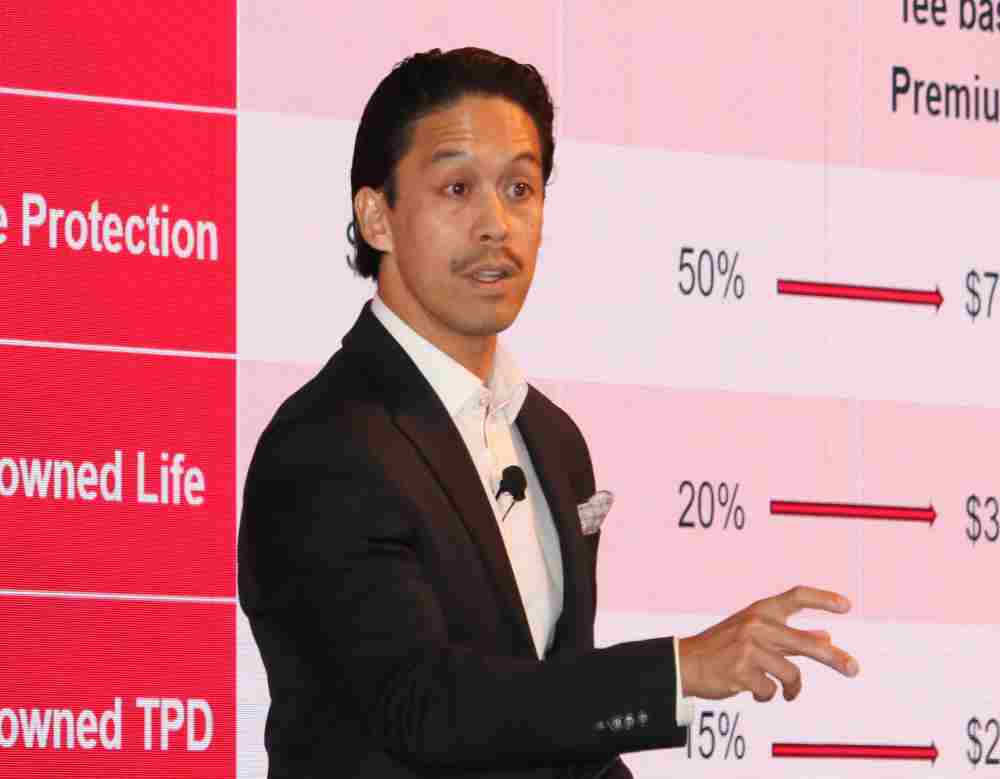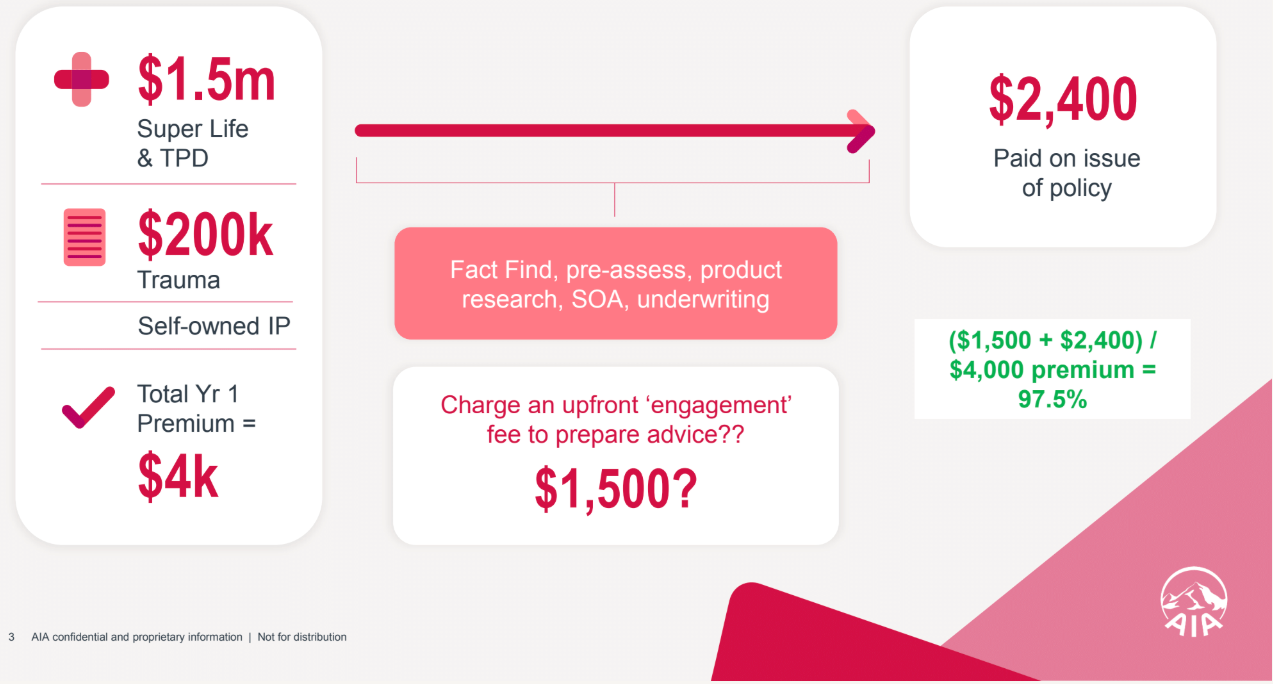Advisers around the country have been updated on additional opportunities which may allow their clients to claim a tax deduction on risk advice, leading in turn to a greater potential for advisers to charge an upfront fee for this service.
This update was provided by AIA Australia’s National Manager, Technical Advice & Strategic Partnerships, Ben Martin, to audiences attending the Riskinfocus 25 Risk Advice CPD events in March.
Martin told attendees that the ATO, via its Tax Determination 2024/7, had provided a nod to partial tax deductible of upfront financial advice fees:
“In broad terms the TD says, in some circumstances – particularly if you’re an adviser scoping the risk and charging an upfront fee for the insurance component of your advice – a part of that upfront fee is now deductible to the client.”
…the ‘million dollar question’ …is how the client fee invoice can set out which part of the fee is tax deductible
He added that the ‘million dollar question’ that has prevailed since the tax determination was released is how the client fee invoice can set out which part of the fee is tax deductible.
Martin shared different methods of apportionment with his audiences around the country in relation to how the adviser’s invoice can be presented in such a way that is fair and reasonable, particularly when it comes before the client’s accountant or tax agent and is being scrutinised from a tax compliance perspective.
He says the FAAA is currently working through industry guidance on TD2024/7 which will provide further clarity on the matter.
“A lot of advisers, based on TD2024/7, are beginning to look at a tweak to their revenue model to bring in an upfront advice fee that is now partially tax-deductible [for the client],” he said.
He gave the example of a client paying an upfront advice fee of $1,500 for a policy with a year-one premium of $4,000.
He said this equates to $1,500 paid into the practice for the hard yards of upfront work which goes into the policy advice before it comes into force, in addition to the $2,400 commission paid by the insurer under the current Life Insurance Framework commission structure (ie 60% of the $4,000 premium).
Martin said sections 8-1 and 25-5 of the Income Tax Assessment Act 1997 were the relevant legislative provisions enabling partial tax deductibility of upfront advice fees.
He spent some time working through different fee apportionment methods by which the deductible amount could be calculated, such as the Total Year 1 Premium method and Activity basis.

He shared his view that the Total Year 1 Premium breakdown could be used as the basis for the calculation of the tax deductible amount of the advice fee, regardless of whether the policy recommendation was eventually accepted by the insurer and placed inforce.
What might normally be considered a relatively ‘dry’ topic, namely a presentation related mostly to an ATO Tax Determination, Martin’s presentation proved to be one of the highlights of Riskinfocus 25, where he received serious engagement from his audiences across the country.
The package of information shared by Martin may offer many advisers and advice businesses the opportunity to reconsider the potential to charge an upfront life insurance advice fee, if they don’t already, to supplement any commission income derived from the result of the advice.
AIA Australia has produced a sample upfront fee invoice template, based on the underlying premise supported by Martin, which is available to advisers via an email request to: tece@aia.com.
See also: ‘Significant Portion’ of Advice Fees Could Be Tax Deductible




